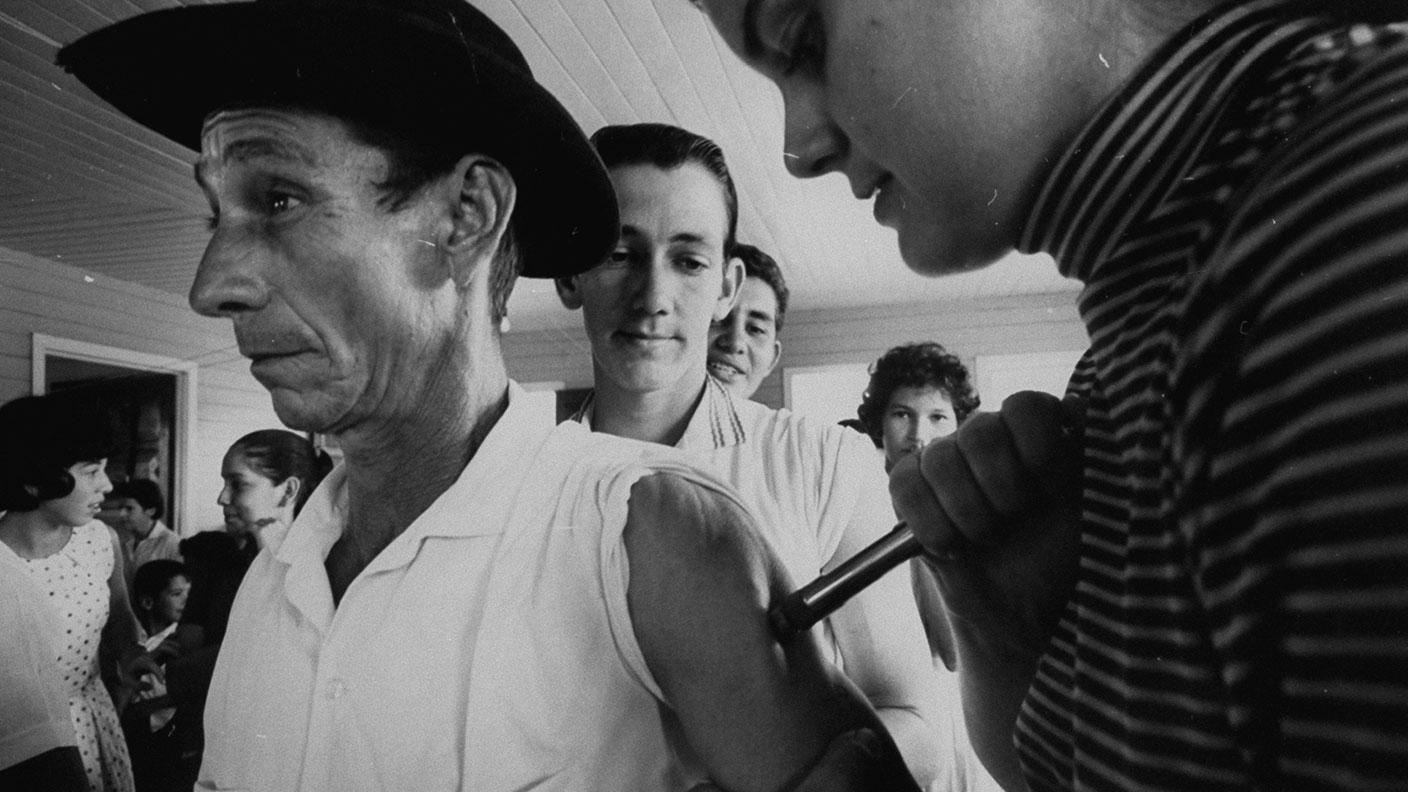
Get the latest financial news, insights and expert analysis from our award-winning MoneyWeek team, to help you understand what really matters when it comes to your finances.
You are now subscribed
Your newsletter sign-up was successful
Want to add more newsletters?

Twice daily
MoneyWeek
Get the latest financial news, insights and expert analysis from our award-winning MoneyWeek team, to help you understand what really matters when it comes to your finances.

Four times a week
Look After My Bills
Sign up to our free money-saving newsletter, filled with the latest news and expert advice to help you find the best tips and deals for managing your bills. Start saving today!
For thousands of years, smallpox was the scourge of humanity. In the 20th century alone, it is estimated to have killed 300 million people. Once infected, there was no effective treatment, and there was a one in three chance of dying.
The oldest evidence of smallpox is from the 12th century BC in the tomb of Rameses V. From Egypt, the disease spread along trade routes to India, then to China. By the sixth century it had reached Japan. It didn't appear in Europe until the 11th and 12th centuries.
Like many infectious diseases, smallpox was unknown in the Americas until Europeans arrived. But once it was introduced, it devastated the indigenous people.
MoneyWeek
Subscribe to MoneyWeek today and get your first six magazine issues absolutely FREE

Sign up to Money Morning
Don't miss the latest investment and personal finances news, market analysis, plus money-saving tips with our free twice-daily newsletter
Don't miss the latest investment and personal finances news, market analysis, plus money-saving tips with our free twice-daily newsletter
“Variolation” was an early attempt at vaccination practised in China. Dried smallpox scab powder was inhaled, causing a mild form of the disease. But still, it had a death rate of up to 3%. And it had the added disadvantage of being capable of spreading a smallpox epidemic of its own.
The practice was brought to Britain in 1721 by Lady Mary Montagu, wife of the ambassador to the Ottoman Empire, who had successfully inoculated her son while in Constantinople. With smallpox killing some 400,000 people in Europe every year, inoculation became very popular, and was even taken up by the royal family. Unfortunately, George III's young sons Octavius and Alfred were two of the 3% who succumbed to the disease.
In 1796, Edward Jenner discovered a more effective vaccine derived from the related cowpox virus, using eight-year-old James Phipps as a test subject. He published his findings in 1798.
It wasn't until 1966, with some two million people dying of the disease every year, that the World Health Organisation embarked on a worldwide eradication programme. The last case of smallpox in the wild was recorded in Somalia in 1977. And the last ever case was in Birmingham in 1978, when a lab technician mysteriously contracted the virus and died.
And so, on this day in 1979, the Global Commission for Certification of Smallpox Eradication reported from Geneva that the disease had been eradicated. The World Health Organisation accepted their conclusions on 8 May 1980. The total cost of the programme was estimated at US$300m. But the saving to the global economy is estimated at over $1bn a year.
Get the latest financial news, insights and expert analysis from our award-winning MoneyWeek team, to help you understand what really matters when it comes to your finances.

-
 Should you buy an active ETF?
Should you buy an active ETF?ETFs are often mischaracterised as passive products, but they can be a convenient way to add active management to your portfolio
-
 Power up your pension before 5 April – easy ways to save before the tax year end
Power up your pension before 5 April – easy ways to save before the tax year endWith the end of the tax year looming, pension savers currently have a window to review and maximise what’s going into their retirement funds – we look at how
-
 31 August 1957: the Federation of Malaya declares independence from the UK
31 August 1957: the Federation of Malaya declares independence from the UKFeatures On this day in 1957, after ten years of preparation, the Federation of Malaya became an independent nation.
-
 13 April 1960: the first satellite navigation system is launched
13 April 1960: the first satellite navigation system is launchedFeatures On this day in 1960, Nasa sent the Transit 1B satellite into orbit to provide positioning for the US Navy’s fleet of Polaris ballistic missile submarines.
-
 9 April 1838: National Gallery opens in Trafalgar Square
9 April 1838: National Gallery opens in Trafalgar SquareFeatures On this day in 1838, William Wilkins’ new National Gallery building in Trafalgar Square opened to the public.
-
3 March 1962: British Antarctic Territory is created
Features On this day in 1962, Britain formed the British Antarctic Territory administered from the Falkland Islands.
-
10 March 2000: the dotcom bubble peaks
Features Tech mania fanned by the dawning of the internet age inflated the dotcom bubble to maximum extent, on this day in 2000.
-
9 March 1776: Adam Smith publishes 'The Wealth of Nations'
Features On this day in 1776, Adam Smith, the “father of modern economics”, published his hugely influential book The Wealth of Nations.
-
 8 March 1817: the New York Stock Exchange is formed
8 March 1817: the New York Stock Exchange is formedFeatures On this day in 1817, a group of brokers moved out of a New York coffee house to form what would become the biggest stock exchange in the world.
-
7 March 1969: Queen Elizabeth II officially opens the Victoria Line
Features On this day in 1969, Queen Elizabeth II took only her second trip on the tube to officially open the underground’s newest line – the Victoria Line.
